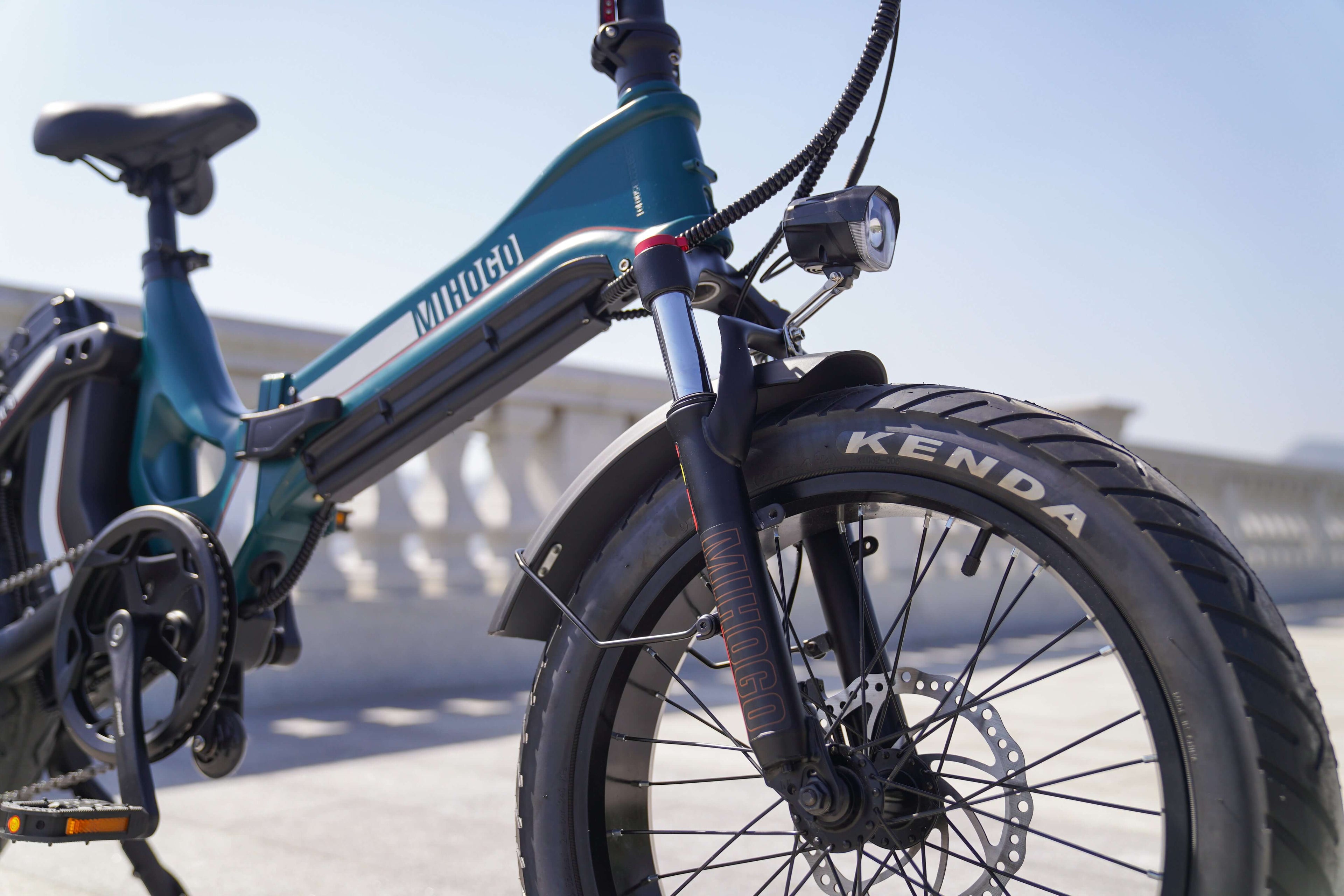Electricity Costs: Remarkably Low Charging Expenses
The most common question about e-bike ownership is: "How much does it cost to charge?" The answer is refreshingly simple – virtually nothing.
Daily Charging Costs
A typical 500Wh e-bike battery costs approximately €0.12 to fully charge at current European electricity rates of €0.2008 per kWh. To put this in perspective:
- Small battery (250Wh): €0.07 per charge
- Standard battery (500Wh): €0.12 per charge
- Large battery (750Wh): €0.18 per charge
Annual Electricity Costs
With most e-bikes achieving 50-100km range per charge and consuming just 0.5-2 Wh per kilometer, your annual electricity costs will typically range from €20-50 for average commuter usage.
For perspective, this works out to approximately €0.00236 per kilometer – making e-bikes one of the cheapest motorized transport options available.
Maintenance: Similar to Traditional Bicycles
Electric bike maintenance costs remain remarkably reasonable, especially compared to cars or motorcycles. Here's what to expect:
Annual Maintenance Breakdown
- Basic servicing: €50-100 annually
- Tire replacements: €30-60 per tire (typically every 2,000-5,000km)
- Brake pad replacements: €20-40 annually
- Chain and drivetrain: €30-60 annually
- Battery maintenance: Minimal (proper charging practices extend life)
Total annual maintenance: €100-300
The key advantage of e-bike maintenance is the reduced complexity compared to internal combustion engines. With fewer moving parts and no oil changes, fuel filters, or spark plugs to replace, maintenance remains predictable and affordable.
Insurance: Optional but Recommended
While not legally required in most European countries, e-bike insurance provides peace of mind:
- Theft and damage coverage: €7-15 monthly (€84-180 annually)
- Personal liability coverage: €5-10 monthly (€60-120 annually)
- Combined policies: €100-200 annually
Many European governments offer e-bike purchase incentives of up to €1,000, which can offset insurance costs for several years.
Total Annual Running Costs: The Big Picture
Here's how electric bike costs compare to other transport modes:
E-Bike Annual Costs (Mihogo Electric Bikes)
- Electricity: €20-50
- Maintenance: €100-300
- Insurance (optional): €100-200
- Total: €200-600
Car Annual Costs (Comparison)
- Fuel: €1,500-2,500
- Insurance: €800-1,500
- Maintenance/Repairs: €500-1,000
- Registration/Tax: €200-500
- Parking: €500-2,000
- Total: €3,000-8,000
The savings are substantial – e-bike ownership costs roughly 10-15% of car ownership annually.
Why European Cities Are Perfect for E-Bike Commuting
The European Union's €3.2 billion investment in dedicated e-bike lanes and charging stations in 2025 makes cycling infrastructure better than ever. Combined with:
- Traffic congestion reduction: E-bikes navigate through traffic efficiently
- Parking convenience: No expensive parking fees or searching for spaces
- Health benefits: Light exercise during commuting without arriving sweaty
- Environmental impact: E-bikes use 8 times less energy per mile than electric cars
Long-Term Value: Battery Considerations
The largest single component cost for any electric bike is the battery. Quality lithium-ion batteries typically last:
- 2-5 years with regular use
- 500-1,000 charge cycles
- Replacement cost: €300-600 (depending on capacity)
When calculated over the battery's lifespan, this adds approximately €60-150 annually to running costs – still keeping total expenses well below car alternatives.
Smart Features That Reduce Costs
Modern electric bikes like those from Mihogo's electric bike collection incorporate cost-saving technologies:
- Regenerative braking: Extends battery life and reduces brake wear
- Smart battery management: Optimizes charging cycles for longevity
- Integrated lighting: Reduces accessory costs and improves safety
- GPS tracking: May qualify for insurance discounts
The European E-Bike Revolution: Market Trends
The global e-bike market is projected to reach USD 87.2 billion by 2032, with Europe leading adoption rates. Key trends affecting running costs include:
- Improving battery technology: Longer-lasting, more efficient batteries
- Enhanced charging infrastructure: More convenient charging options
- Government incentives: Continued support for sustainable transport
- Insurance competition: More affordable coverage options
For detailed information about sustainable transportation initiatives, visit the European Cyclists' Federation to learn more about cycling infrastructure development across Europe.
Making the Switch: Cost-Benefit Analysis
When considering an electric bike purchase, the math is compelling:
Break-even calculation (vs. car ownership):
- Annual savings: €2,400-7,400
- Typical e-bike cost: €1,500-3,000
- Payback period: 2-15 months
For urban commuters traveling 10-30km daily, the savings begin immediately and compound over time.
Maximizing Your E-Bike Investment
To minimize running costs and maximize value:
- Choose the right battery size for your typical journey distance
- Invest in quality components to reduce maintenance frequency
- Follow proper charging practices to extend battery life
- Regular maintenance prevents costly repairs
- Consider insurance for high-value models
According to Wikipedia's analysis of bicycle economics, cycling represents one of the most efficient forms of human transport ever developed, and electrification only enhances this efficiency.
The Future of Urban Mobility
By 2030, e-bikes are expected to account for 50% of all bicycle sales in Europe. This shift represents more than a trend – it's a fundamental change in how Europeans approach urban transportation.
With running costs of just €200-600 annually, electric bikes offer unmatched value for money, environmental benefits, and convenience. Whether you're commuting to work, running errands, or exploring your city, e-bikes provide an economical solution that traditional transport simply cannot match.
The question isn't whether you can afford to run an electric bike – it's whether you can afford not to make the switch.






